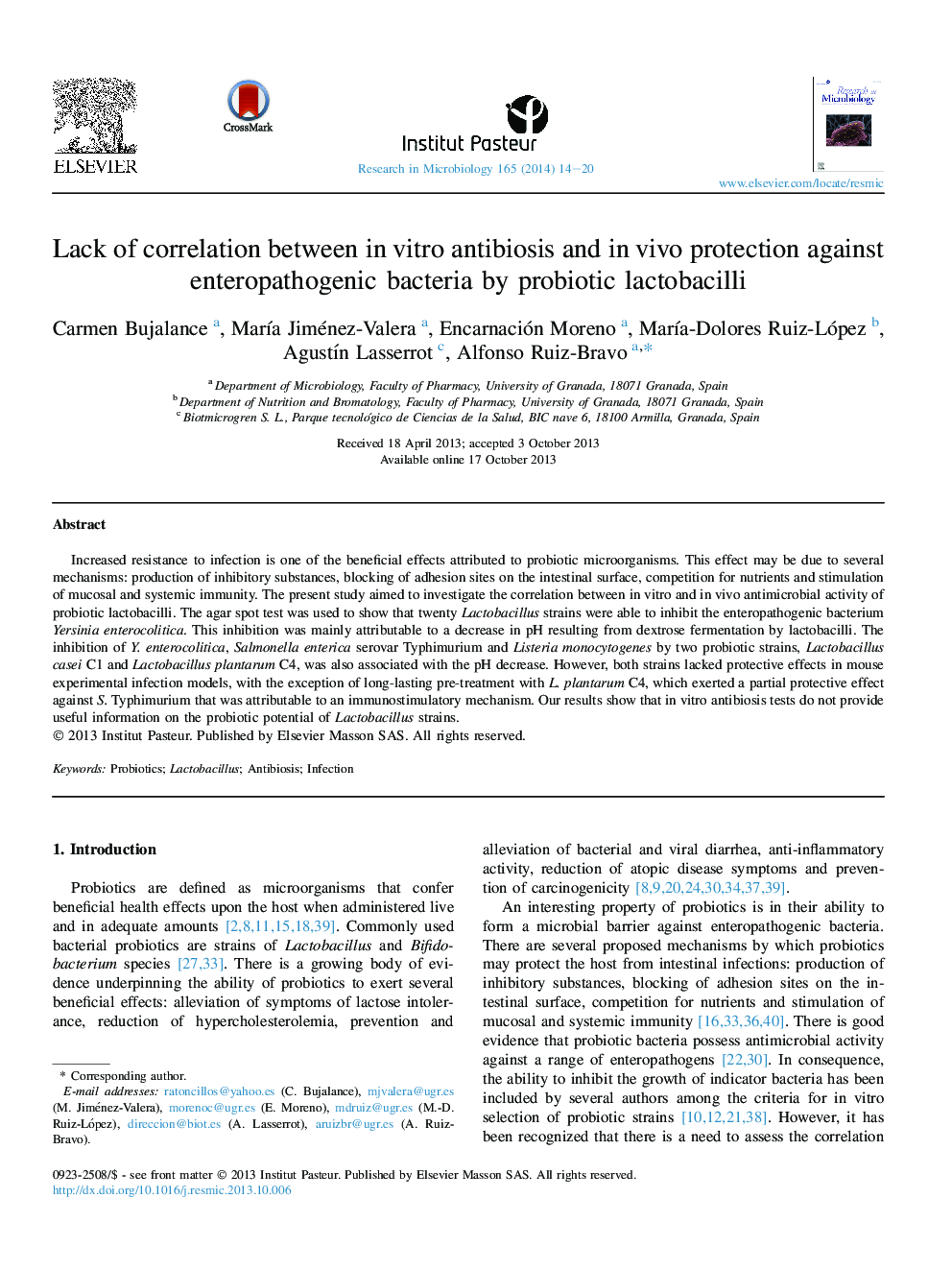| Article ID | Journal | Published Year | Pages | File Type |
|---|---|---|---|---|
| 4358742 | Research in Microbiology | 2014 | 7 Pages |
Abstract
Increased resistance to infection is one of the beneficial effects attributed to probiotic microorganisms. This effect may be due to several mechanisms: production of inhibitory substances, blocking of adhesion sites on the intestinal surface, competition for nutrients and stimulation of mucosal and systemic immunity. The present study aimed to investigate the correlation between in vitro and in vivo antimicrobial activity of probiotic lactobacilli. The agar spot test was used to show that twenty Lactobacillus strains were able to inhibit the enteropathogenic bacterium Yersinia enterocolitica. This inhibition was mainly attributable to a decrease in pH resulting from dextrose fermentation by lactobacilli. The inhibition of Y. enterocolitica, Salmonella enterica serovar Typhimurium and Listeria monocytogenes by two probiotic strains, Lactobacillus casei C1 and Lactobacillus plantarum C4, was also associated with the pH decrease. However, both strains lacked protective effects in mouse experimental infection models, with the exception of long-lasting pre-treatment with L. plantarum C4, which exerted a partial protective effect against S. Typhimurium that was attributable to an immunostimulatory mechanism. Our results show that in vitro antibiosis tests do not provide useful information on the probiotic potential of Lactobacillus strains.
Related Topics
Life Sciences
Immunology and Microbiology
Applied Microbiology and Biotechnology
Authors
Carmen Bujalance, MarÃa Jiménez-Valera, Encarnación Moreno, MarÃa-Dolores Ruiz-López, AgustÃn Lasserrot, Alfonso Ruiz-Bravo,
